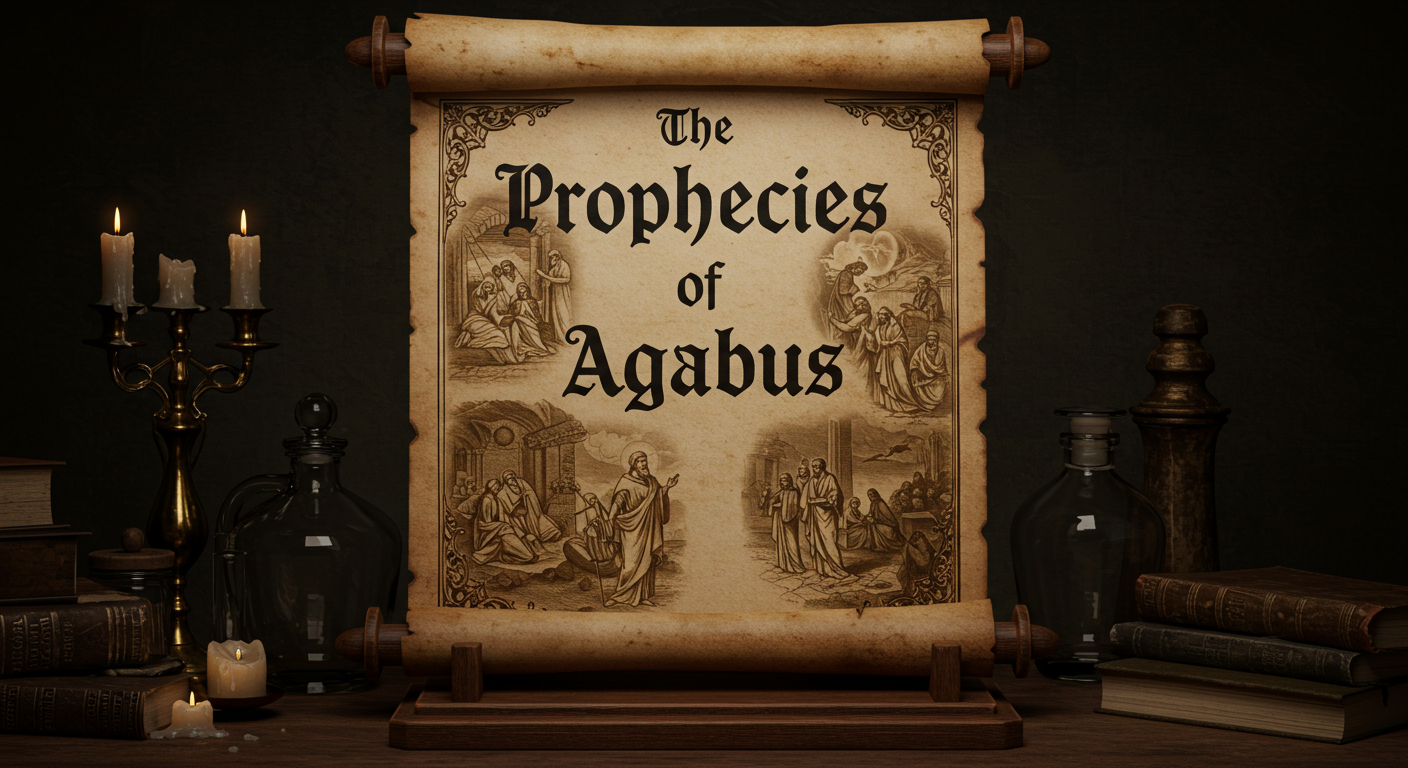Explore the intriguing prophecies of Agabus, a lesser-known but influential biblical figure, whose insights guide and inspire faith and community action today.

The Prophecies of Agabus: A Deep Dive into His Role and Significance
Agabus may not be a household name like Moses or David, but his contributions to biblical prophecy are significant enough to earn him a prominent place in scripture. Agabus was a prophet in the early Christian church, providing guidance and foresight during critical moments in New Testament history. His prophecies not only impacted the course of events in his own time but also offered lasting lessons on faith, obedience, and communal responsibility.
Agabus’s ability to foresee major events and his willingness to share these insights, even when they carried grave messages, make him an intriguing figure for anyone interested in biblical prophecy or the early Christian church. In this detailed exploration, let us discover who Agabus was, what his prophecies entailed, what we can learn from his role, and how his life connects to the challenges we face today.
Agabus in the Biblical Narrative
Agabus’s Introduction as a Prophet
Agabus is first introduced in the Book of Acts, which is the chronicle of the early church following the ascension of Jesus Christ. Known for the Spirit-given ability to predict future events, Agabus’s role is framed within the context of a growing Christian community that is navigating new challenges and uncertainties. Key references to Agabus appear in two primary episodes: one forecasting a famine and another concerning the Apostle Paul.
The Prophecy of Famine
The first documented prophecy by Agabus appears in Acts 11:27-28. During a visit from prophets from Jerusalem to Antioch, Agabus stood and foretold by the Spirit that a great famine would spread over the entire Roman world. This event, which occurred during the reign of Claudius, was a significant prediction that led the disciples to act with compassion and responsibility. They organized aid for the brothers and sisters living in Judea, demonstrating the communal ethos promoted by early Christians.
The Prophecy Concerning Paul
Agabus’s second notable prophecy is recounted in Acts 21:10-11. During Paul’s journey to Jerusalem, Agabus visited and delivered a prophetic action by taking Paul’s belt, tying his own hands and feet, and declaring that the owner of the belt would be bound by the Jews and handed over to the Gentiles. This prophecy foreshadowed Paul’s imminent arrest in Jerusalem, serving as a moment of both warning and fulfillment of God’s plan for Paul’s mission.
Lessons from the Life of Agabus
Faith as Foresight
One compelling lesson from Agabus’s life is the integration of faith with foresight. Agabus’s prophecies demonstrate the importance of trusting divine insight even when it portends difficult circumstances. His faithfulness in delivering God’s message, regardless of its unwelcome nature, reminds us that often, truth must be spoken despite its potential discomfort or consequences.
The Role of Community and Responsibility
Agabus’s prophecy concerning the famine illustrates the early church’s perception of community and collective responsibility. The church’s response to collect provisions for those affected reveals a practical outworking of faith through action. It is an enduring reminder of how communities should rally together, showing compassion and offering support to those in need.
Courage in Speaking God’s Truth
Agabus also exemplifies courage in speaking the truth. His prophecy regarding Paul’s future imprisonment required boldness, as it foreshadowed adversity for one of the church’s pivotal leaders. Yet, Agabus’s willingness to convey the message underscores the importance of fulfilling one’s divine calling without fear.
Connection to Today’s World
Navigating Uncertainty
In today’s world, where uncertainty often prevails at both personal and global levels, Agabus’s story encourages reliance on spiritual insight and wisdom. Just as the early Christians trusted Agabus’s prophecies to prepare for future challenges, individuals today can draw on faith to navigate through life’s unpredictable tides.
Community Support and Collective Action
The early church’s response to Agabus’s prophecy of famine can inspire modern communities to act in unity and support each other during crises. Whether it’s a natural disaster or a global pandemic, coming together to aid those in distress remains a crucial lesson. Agabus’s narrative challenges us to consider how we can contribute our resources, time, and effort to support those who are vulnerable or in need.
Courage to Communicate
Agabus’s actions highlight the need for courage in communication and truth-telling, a relevant lesson in the age of misinformation and digital influence. His commitment to conveying God’s truth, regardless of its popularity or acceptance, serves as a call for integrity and honesty in our personal and professional environments.
Key Bible Verse
“Coming over to us, he took Paul’s belt, tied his own hands and feet with it and said, ‘The Holy Spirit says, “In this way the Jewish leaders in Jerusalem will bind the owner of this belt and will hand him over to the Gentiles.”’” (Acts 21:11)
This verse encapsulates Agabus’s role in the Christian community as a prophet and messenger of God’s revelations. It showcases the dramatic and vivid manner in which Agabus communicated God’s warnings, emphasizing the tangible impact of prophetic actions within the biblical context.
Thought-Provoking Question
When faced with moments of uncertainty or crisis in your own life, how can you cultivate a sense of spiritual foresight and communal responsibility, drawing lessons from Agabus’s example?
Historical and Cultural Context
Understanding the historical setting of Agabus’s prophecies provides deeper insights into their significance. During the Roman Empire’s expansive rule, food shortages and famines were not uncommon. Agabus, as a prophet, provided divine insights that addressed these real and pressing concerns, offering a sense of divine order and preparation amidst the socio-economic challenges of the time.
Comparison with Other Characters
Agabus can be compared to prophets like Jeremiah, who also delivered messages of warning amidst challenging circumstances. Both prophets demonstrate the crucial role of obedience to God’s word, even when that message is one of impending hardship rather than immediate hope.
A Short Prayer Inspired by Agabus
Dear God, help us to hear Your words with the same faith and courage that Agabus embraced when delivering prophecy. Grant us the wisdom to support our communities in times of need and the foresight to act with compassion and integrity. May we find strength in faith and community, recognizing Your hand in every part of our journey. Amen.







